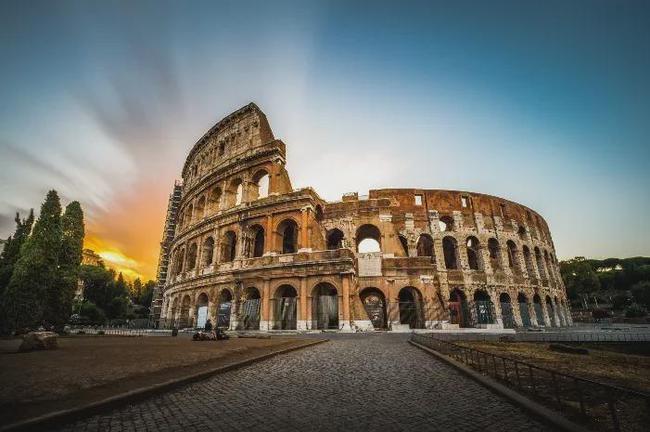1. Athens Athens may not be as long as Istanbul, the capital of a thousand years ago, and may not be as powerful as Rome, the eternal city, in terms of its influence on contemporary European civilization, but it is not too much to call Athens the first ancient capital of Europe as the starting point of European civilization. Athens is now the capital of Greece, a country in southern Europe, located on the Balkan Peninsula and bordering the Aegean Sea, with a typical Mediterranean climate. Originally just one of the many city-states of ancient Greece, Athens eventually rose to become the center of civilization thanks to its developed maritime trade and powerful navy. However, with the rise of the Roman civilization, centered on the Apennines, the Athens-centered civilization gradually declined. Athens became less prominent than it had been in the long period of European medieval history that followed. In modern times, with the independence of Greece from the Ottoman Empire, Athens became the capital of the modern Greek Republic, and in 1896 it hosted the first modern games.

2. Rome As the capital of the ancient Roman Empire, the city of Rome was of the highest status in the eyes of Westerners. Although Rome is now the capital of Italy, this world-famous city in the middle of the Apennines was the center of the Mediterranean Sea and the Western world at that time, and the proverb "all roads lead to Rome" itself shows its central position in the Western world. From the third century B.C., when Rome became the hegemon of the Mediterranean, until the fall of the Western Roman Empire in the fifth century A.D., Rome was the most important city in the Western world for almost a thousand years. "The City of Rome With the reunification of the Italian peninsula in the modern era, Rome became the capital of the new Italy and a world-renowned tourist destination because of the many monuments that dot the city.

3. Istanbul Istanbul is the economic, cultural and transportation center of Turkey and a world-renowned tourist destination. This world-famous city is located in the easternmost part of the Balkan Peninsula in southeastern Europe,[bai] and its urban area straddles both sides of the Bosphorus. The Bosphorus is the only waterway linking the Black Sea and the Mediterranean Sea, so since ancient times it has been a place of contention for all powers. The city-state of Byzantium was already established in the ancient Greek period, but it remained obscure for most of the ancient Greek and later Roman era. It first became the capital of the empire in the late Roman period, then the capital of the Eastern Roman Empire as the Roman Empire broke up, and gradually began to take center stage in world history over the next thousand years. In the 15th century, the city was occupied by the Ottoman Empire, which came from the East and became the capital of a large empire that spanned three continents until it was finally lost after World War I due to the disintegration of the empire. The city was at the center of history during the long medieval period in Europe and the Middle East, and its influence on world history is self-evident. Today, Istanbul has become a cultural city of global popularity due to its rich historical and cultural heritage, and is currently the largest industrial and commercial center in Turkey.

4. Paris With the gradual decline of Western Rome, the Germanic people from Central Europe rose to power and established the Frankish Kingdom, which covered most of Central and Western Europe, and Paris became the capital of the kingdom for a short time. It was not until the kingdom was divided into three that Paris finally became the stable capital of the new West Frankish Kingdom, later known as France, until now. The East Franks (the predecessor of Germany) and the Middle Franks (the predecessor of Italy) failed to form a unified and strong feudal dynasty throughout the Middle Ages because of the long division between them. The West Franks, later known as France, naturally became the most powerful feudal kingdom in Western Europe at that time, and with the eventual victory of the Hundred Years' War between France and England, France always dominated the history of Western Europe in the Middle Ages, and Paris naturally became the most important center of civilization in Western Europe since the Middle Ages and even today. Because of its long and splendid history, the old city of Paris is full of famous monuments and has always been the most popular tourist city in the world.

5. Vienna Many feudal cities were formed in Central Europe, the most important of which was Vienna, the capital of music. Because after the 14th century, the throne of the Holy Roman Empire was always held by the Habsburgs, who occupied Austria. Vienna became the most important political and cultural center of Central Europe for the next four or five hundred years, until Napoleon finally dismembered the Holy Roman Empire. During this time, it also became the strongest bulwark against Islamization in Europe because of its success against the Ottoman Turks. Of course, Vienna remained the capital of the Austro-Hungarian Empire and contemporary Austria thereafter. So it can be said that Vienna was one of the three main political centers of Eastern, Central and Western Europe in the Middle Ages, alongside Istanbul and Paris, and its city is dotted with many old buildings in the Baroque style. Its beautiful scenery and rich history make it one of the most popular cities for the headquarters of international institutions.






